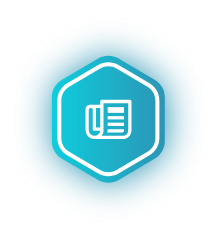“Tell me about yourself”
Author: IntaPeople | Date published: 07/12/20


You have managed to secure yourself an interview, telephone or more commonly these days a video interview. You know this is your chance to understand the role, a chance to meet your future hiring manager, so you want to make a good impression, but don’t forget, this is the hiring manager’s chance to put more than a face to a name, but also a professional to a profile; to find out who you are and how you operate.
Their opening statement to you, “Tell me about yourself” … or even “Talk me through your CV” … can inevitably, and unhelpfully, make your mind go blank as questions about where to begin start running through your head, what areas of your CV do you focus on, what do you brush over, what do you leave out and how do you explain those gaps?!
This is why preparation is key for every interview, you want to skillfully talk through your CV; highlighting the skills and experiences that reflect why you are right for the role, making the hiring manager confident in deciding to bring you on board over all other applicants.
What role to start with?
Its always best to talk through your CV in chronological order, your CV should start with your most recent role, and go back, so when an interviewer asks “talk me through your CV”, it’s best to start from leaving higher education and working up your CV to your present role.
Now, I appreciate if higher education was over a decade ago you won’t spend too much time discussing it in detail, as well as if at university you studied “Journalism” but now find yourself trying to develop a career in Software Development, so prepare a brief story to talk through your experience and choices, especially those that were shorter than expected in your career. It’s always good to explain to the hiring manager a few points:
- An overview of your past roles and the responsibilities which relate to the role you are applying for.
- How each role led you to the next
A good tip is to take the company’s job description of the role you are interviewing for, sit it alongside your CV and highlight your education and industry experience which match up with the job. This will give you a good indication of what you should discuss (everything highlighted) and what does not need so much attention (everything not highlighted).
The areas of your career that are not so relevant, that hospitality role that taught you a lot but was mainly a way of supporting yourself whilst you were trying to break into the industry, is still good to mention. “After graduating / finishing school I took a role within hospitality whilst applying for Software Developer roles, working evening shifts allowed me free time to apply and attend interviews during the day”.
One key thing before your interview, even before applying for roles, make sure your LinkedIn profile is consistent with your CV. Hiring managers will compare the two and if anything doesn’t align, they will ask. In this example you may have left out working in hospitality whilst trying to break into the industry, so the hiring manager will probably want to know what you were doing in this time, especially if it was for a year or two.
When discussing with the hiring manager the areas of your experience that are relevant, it’s good to explain how you ended up in the position, your key responsibilities which relate to the role you are interviewing for, and why you chose / are choosing to move on.
For example “After working within Software Development for two years, I wanted to gain further experience of different languages, as the product we built was specifically in one language, there was no chance to gain further exposure, unless in my free time. Therefore, I decided to look for a new challenge that would enable me to learn and gain exposure to different tech!”
Gaps in CVs, especially if it is an employment gap of three months or more, need to be explained. Travelling, career breaks, studying, redundancy, family commitments, hiring managers have heard it all, do not shy away from the details.
“In between my role at A and B, the opportunity to travel arose, I decided it would be a good chance for me to take some time out and increase my independence, see the world, and so I traveled across Australia”.
If the hiring manager has also traveled to Australia, or spent some time travelling, the interview opens up a little and becomes less formalised, and it’s nice to know you have some similarities with someone you potentially will be working with/for.
Talking through your CV will always be a significant part of your job search, and although it is your personality, your time, your hobbies, and your experiences you are speaking about, it is staggeringly overlooked when preparing for an interview.
Preparation is key!
Planning what to highlight, how to describe it, and adapting how you discuss it according to the role you are interviewing for can either make for a rocky start or a great beginning.
Remember, you want to tell your story, emphasise the relevant parts, providing the hiring manager with a concise, unified background, setting a strong tone for the rest of the interview process or, better still, an offer of employment!
For tips and advice on common interview questions check out this link.
For tips and advice on optimising your social media check out this link.
For further advice and career guidance, get in touch today.
